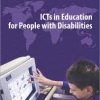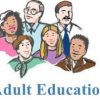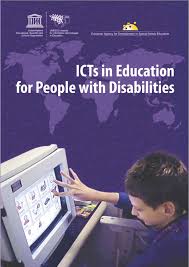KNOWLEDGE, ATTITUDE AND AWARENESS ON SEXUALLY TRANSMITTED DISEASES AMONG STUDENTS WITH LEARNING DISABILITIES
₦10,000.00 ₦3,000.00
ABSTRACT
This research work centre on Knowledge, Attitude and Awareness on sexually transmitted diseases among students with learning disabilities. This study was conducted at Afijio Local Government, Oyo, Oyo State. The sample for this study comprises of one hundred and fifty (150) students in five schools in Afijio Local Government Area of Oyo State. The instruments used for the data collection in this study was questionnaires and simple percentage was used for the data analysis. The findings showed that many students have knowledge on Sexually Transmitted Diseases but they still engage in sexual intercourse without protecting themselves except they use pills for protection.
Description
CHAPTER ONE
INTRODUCTION
1.1 Background to the study
Sexually Transmitted Disease (STDs) are infections that can be transferred from one person to another through any type of sexual contact. Sexually Transmitted Infections/Diseases are those diseases that are contracted mainly through sexual intercourse. They include curable ones like gonorrhea, syphilis and Chlamydia infection as well as incurable but modifiable ones like Human Immunodeficiency Virus, herpes simplex, human papilloma virus (HPV), and hepatitis B infections (Nsuam, Sanders and Taylor, 2010). Sexually transmitted disease (Sexually Transmitted Diseases) are sometimes referred to as sexually transmitted infections (STIs) since they involve in the transmission of a disease-causing organism from one person to another during sexual activity. It is important to realize that sexual contact includes more than just sexual intercourse (vaginal and anal). Sexual contact includes kissing, oral-genital contact and the use of sexual “toys” such as vibrator. Sexually transmitted disease probably have been around for thousands of years but the most dangerous of these conditions, is the Acquired Immune Deficiency Syndrome (Human Immunodeficiency Virus, HIV) has only been recognized since 1984. (Melisa, 2019).
Adolescents and young adults between the age of 15-24 years are more at risk. The World Health Organization estimate that 20% of persons living with HIV/AIDS are in their 20s and one out of twenty adolescents contact an STI each year (Olabode, 2009). Knowledge is a set of experience, skills, insight e.t.c. while awareness is the perception of that knowledge. Although knowledge and awareness have been reported to have a limited effect on changing attitudes and behaviour, they are important components of sex education which helps to promote and informed healthy choices. As schooling is now generally compulsory at least up to the age of 15 years, sex education should be part of the school curriculum in Nigeria, school-going adolescents should be well informed on the health risks associated with sexual activity and how to protect themselves and others. In view of the decreasing age of sexual debut and the reported increasing numbers of diagnosed Sexually Transmitted Diseases among young people, results of this research can help point out areas where Sexual Transmitted Disease risk communication for school-attending adolescents needs to be improved.
Learning disabilities are neurologically-based processing problems. These processing problems can interfere with learning basic skills such as reading, writing and/or mathematics. They can also interfere with higher level skills such as organization, time planning, abstract reasoning, long or short term memory and attention. It is important to realize that learning disabilities can affect an individual’s life beyond academics and can impact relationships with family, friends and in the workplace. (Learning Disabilities Association of America).
The sex life of Senior Secondary School (SSS) students poses a social problem which society has ignored primarily because it has workable and acceptable answer. The youths of this generation have more opportunity than ever before to indulge in sexual intercourse because their controlling fears of the past, social disgrace, venereal disease, unwanted pregnancy have been reduced by breakthrough in medicine and related discipline. Also diversified job opportunities enable parents to travel great distance for better career and recreation. This reduced the effectiveness of family and community supervision of the adolescent (Maurititus Research Council, 2006).
Apart from social disapproval of adolescent sexual later experimentation, there are serious health related problems. These include exposure to venereal diseases and its medical consequence due to delayed and appropriate treatment, prostitution, abortion by quacks, the use of questionable method of birth control and finally premature termination of education which increased social liabilities. (Warriner, 2006).
There are efforts to deal openly and constructively with these sex related problems some of which is that, children should know about venereal disease by the time they reach the age of puberty. Information of this kind should be linked with advice on the value of self-restrain and should stress the idealistic views of the union of man and woman in marriage. Also proper understanding and appropriate sex education will be remedy to teenage pregnancies in Nigeria (United Nations Children’s fund, UNICEF, 2006).
The present generation of Nigeria Secondary School Student are much more younger than those of the last decade, this is due to new innovation in Nigeria education as well as the awareness and concern of parents in sending their children to school at a much tender age. Although, they are younger in chronological age, they mature much earlier than predecessors. This was attributed to better nutrition, improved standard of living and health care services. In order to be of assistance to the adolescent in adjusting to the demand of the society in sex, there is need for a thorough understanding of the adolescents especially with respect to their attitudes of sex. (Girls’ Education in Nigeria, 2014).
Samkange, Spallek and Zeeb et al (2011) opined that Sexually transmitted diseases (STD) are a major health problem affecting mostly young people, not only in developing, but also in developed countries. There are low levels of awareness and knowledge of sexually transmitted diseases, with the exception of HIV/AIDS. Although, as shown by some of the findings on condom use, knowledge does not always translate into behaviour change, adolescents’ sex education is important for Sexually Transmitted Diseases prevention, and the school setting plays an important role.
Although knowledge and awareness have a limited effect on changing attitude and behaviors, they are important components of sex education which help promote informed, healthy choice. As schooling is now generally compulsory at least up to the age of 15 years, sex education should be well informed on the health risk associated with sexual activities and how to prevent themselves and others. In view of the decreasing age of sexual debut and the reported increasing number of diagnosed sexually transmitted diseases (STDs) among young people, result of this research can help point out areas where sexually transmitted diseases (STDs) risk communication for school attending adolescents needs to be improved.
Generally speaking, people with learning disabilities are of average or above average intelligence. There often appears to be a gap between the individual’s potential and actual achievement. This is why learning disabilities are referred to as “hidden disabilities”: the person looks perfectly “normal” and seems to be a very bright and intelligent person, yet may be unable to demonstrate the skill level expected from someone of a similar age.
The academic performance of every child is wired with the state of the cognitive condition that the child is. The reason for this is that cognitive skill is the processor that processes the learning bits that child learns in the class. Raheem (2015) states that there are three basic skills needed by every student to process and exercise the knowledge gained. These skills are receptive skills, cognitive skills and productive skills. Receptive skills are skills that students used to receive information, these are reading and listening. Cognitive skill is the skill used by the students to process the information received, this is the reasoning faculty of the students. Productive skills are skills that the students use to express what they have learnt through receptive skills and their cognitive skill.
Rector & Johnson (2005) stated that most sexually active students perform poorly in their studies and faced several problems, which compromised their academic lives. It is taken that, poor academic performance is an indication of negative effect of students’ sexual relationship to academic wellbeing. The logic is that, students who are sexually active may become preoccupied with their sexual activity and have diminished importance to academic goals.
Further, several problems were associated with students’ sexual relationship including shame and psychological disturbances, which are resulting from handling students’ sexual relationship in schools. It is the fact that, students’ sexual relationship is inherently short term and unstable, which means, when it collapses the result is likely to be emotional turmoil and depression (Rector & Johnson, 2005). If students are psychologically disturbed or depressed; these are likely to have negative consequences on academic prospects culminating to undermined academic performance or total loss of education opportunity. It is found that teens who abstain from sex during high school studies are substantially less likely to be expelled from school, less likely to drop out of high school; and more likely to attend and graduate from college (Mylakado and Thimoty, 2014).
Apart from students’ sexual relationship compromising with academic performance, it also observed that, students are involved in risky sexual relationship, which exposes them to sexually transmitted infections including HIV or leading to unplanned premarital pregnancy (Mlyakado, 2013; 2013a; Ngalinda, 1998). Some students are sexually exploited by teachers or other adults in schools or neighbourhoods respectively. These, directly or indirectly, affect academic achievements. It is argued that, when greater energy and interest are invested in sexual activity, the drive for academic performance is likely to diminish (Rector & Johnson, 2005) and early initiation of sexual intercourse correlates with poor academic performance (Schvaneveldt, 2001).
1.2 Statement of the problem
Students mentioned many reasons for engaging in sexual relationship, which were categorised as fashion to comply with groups (peer pressure), satisfaction of body sexual desire (self-desire), getting gifts in terms of academic favours from teachers or material things in exchange for sex, and economic (poverty) status of students.
The prevalence of premarital sex among adolescent is becoming unbearing, despite the fact that several problems were associated with students’ sexual relationship including shame and psychological disturbances, which are resulting from handling students’ sexual relationship in schools, the secondary school students still engage in sexual activities. What bothers the mind of the researcher is that are they not aware of the Sexually Transmitted Diseases that were attached to it? The sardonic situation is even more when there are some common reports that some teachers are aiding these students in moral corruption. In fact, it is more worst that students who are learning disabled are also among the victims of premarital sex. Despite the fact that sex education is now among the subjects that students are learning in schools, the situation of this decadence is still prevalent. The researcher is of the opinion that despite the fact that there are many awareness on Sexually Transmitted Diseases in Nigeria, adolescents are yet not given the knowledge and awareness they suppose to have. This now bothers the researcher and comes up with the topic; Knowledge, Attitude and Awareness of Sexually Transmitted Diseases among students with learning disabilities in some selected secondary schools.
1.3 Purpose of the Study
The purpose of this study is to look into the Knowledge, attitude and awareness of Sexually Transmitted Diseases among students students with learning disabilities on the academic performance in some selected secondary schools in Afijio Local Government of Oyo State. The study also seeks to determine the effects of sexual intercourse on academic performance of secondary school students. It also seeks to determine the level of awareness of Sexually Transmitted Diseases (Sexually Transmitted Diseases) on the attitude of students with learning disabilities.
1.4 Research Questions
- To what extent does the knowledge and awareness of Sexually Transmitted Diseases motivate the interest of students with learning disabilities towards their attitude to sex?
- Of what influence is the attitude of students with learning disabilities towards the knowledge and awareness of Sexually Transmitted Diseases?
- Does sexually transmitted diseases/infection has negative effects on the academic performance of students with learning disabilities?
1.5 Significance of the Study
This study helps to show the Knowledge, Attitude and Awareness of Sexually Transmitted Diseases among students with Learning Disability in some selected secondary schools. The study is significant because it helps to show the impact of Knowledge, Attitude and Awareness of sexually transmitted diseases (STDs) academic performance students with learning disabilities. The research work is also significant as it will help improve teachers’ knowledge in teaching their students on sexual education and their students’ academic performance.
1.6 Scope of the Study
This research work is limited to some selected secondary schools in Afijio Local Government of Oyo State. Five schools will be visited in the Local Government and the name of the schools are:
- Sped International Secondary School, Akinmonrin
- Fiditi Grammar School, Fiditi
- Community Grammar School, Jobele
- Methodist Grammar School, Fiditi
- Ilora Grammar School, Ilora
1.7 Operational Definition of Terms
Attitude: The position of state of thinking of a person or the way that you think or behave about something.
Awareness: Knowing or realising that something exist or being interested in something.
Knowledge: Facts, information and skills acquired through experience or education, the theoretical or practical understanding of a subject
Sexually Transmitted Diseases: Sexually Transmitted Diseases
Learning Disabilities: It means neurologically-based processing problems that can interfere with learning basic skills such as reading, writing and/or math. They can also interfere with higher level skills such as organization, time planning, abstract reasoning, long or short term memory and attention.
Academic performance: it means the result of the assessment of students on their academic pursuit.







Reviews
There are no reviews yet.